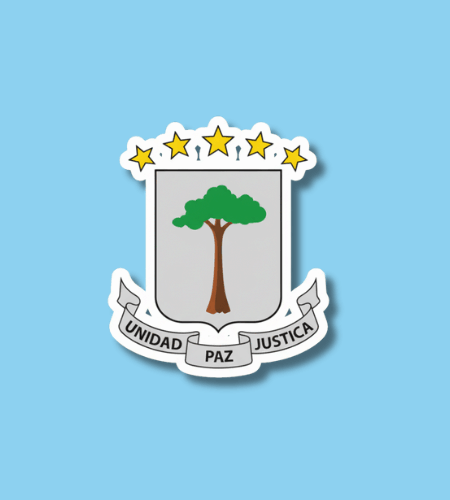Equatorial Guinea Independence Day is observed each year on October 12, and on this day the country celebrates its independence from Spanish colonial rule achieved in 1968.
Table of Contents
History of Equatorial Guinea Independence Day
The region that is now Equatorial Guinea had been under Spanish control (as Spanish Guinea) for many decades, with Spain formalizing governance and colonization in the late 18th and early 19th centuries. Over time, pressures from nationalist movements, the wider wave of African decolonization, and international diplomatic influence led Spain to begin conceding autonomy. By 1968, Spain agreed to a constitutional referendum, parliamentary elections, and the formal handover of sovereignty. The new Republic of Equatorial Guinea was proclaimed on October 12, 1968, and Francisco Macías Nguema was elected as its first president.
After independence, the country faced internal political turmoil, authoritarian rule, and governance challenges. Still, the date of October 12 remains a focal point of national identity, pride, and reflection on the country’s path from colonial rule to self‑determination.
Why is Equatorial Guinea Independence Day important?
This day is a symbol of national sovereignty and pride. For Equatorial Guineans, it represents the formal break from foreign domination and the beginning of self‑governance. Observing Independence Day allows citizens to reflect on their country’s struggles and achievements, and to reinforce a sense of shared identity and belonging. It reminds people of the cost and value of freedom—how much effort and change were required to move from colonial status into nationhood.
At the same time, Independence Day serves as a moment to acknowledge ongoing challenges. The legacies of colonialism—economic inequality, centralization of power, infrastructural deficits—still shape the nation. Celebrating the day offers a space to contemplate how far the country has come and how much remains to be done in social, political, and economic development. It can inspire efforts toward reconciliation, solidarity, and national renewal.
Some ways the day matters:
- honoring the achievement of full self‑rule
- reinforcing national unity and identity
- offering a moment of collective reflection and hope
- reminding citizens of both past struggle and future possibilities
- spotlighting national culture, heritage, and traditions
How to Celebrate Equatorial Guinea Independence Day
Independence Day is often marked with official ceremonies, flag raisings, military parades, speeches by government leaders, and cultural performances including music, dance, and displays of traditional attire. Schools, civic groups, and communities may host events that highlight local customs, history, and arts.
Individuals can observe the day by attending local events, displaying the national flag, sharing stories of national history, or engaging in cultural practices. It’s also meaningful to reflect personally on what independence has brought, and to consider ways of contributing to the country’s future—whether through public service, education, or community building. In diaspora communities, gatherings, meals, or cultural evenings help maintain links to national identity.
Some concrete ideas:
- attend or watch an official ceremony or parade
- display the national flag or wear national colors
- listen to or perform traditional music, dance, or poetry
- organize a discussion, lecture, or exhibition about national history
- gather with family or community to share national dishes, stories, or customs
Equatorial Guinea Independence Day Dates Table
| Year | Date | Day |
|---|---|---|
| 2026 | October 12 | Monday |
| 2027 | October 12 | Tuesday |
| 2028 | October 12 | Thursday |
| 2029 | October 12 | Friday |
| 2030 | October 12 | Saturday |
Subscribe to our newsletter and never miss a holiday again!

